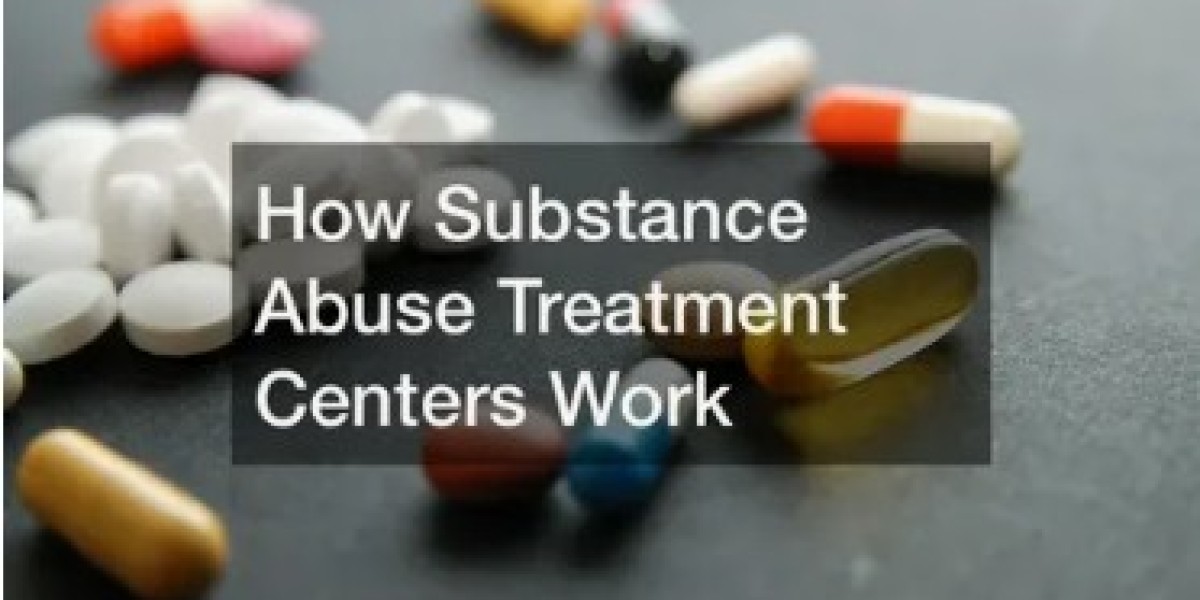Substance abuse is a pervasive issue affecting millions of people worldwide. Individuals struggling with addiction face not only physical and psychological challenges but also social and economic consequences that can disrupt their lives and the lives of those around them. Fortunately, substance abuse treatment programs exist to provide structured, evidence-based care to help individuals recover from addiction and regain control over their lives. Understanding the types, benefits, and structure of these programs is essential for anyone seeking help for themselves or a loved one.
Understanding Substance Abuse
Substance abuse refers to the harmful or hazardous use of psychoactive substances, including alcohol, prescription medications, and illicit drugs. Chronic substance use can lead to addiction, a condition characterized by compulsive drug-seeking behavior despite negative consequences. Addiction affects brain chemistry, decision-making, and emotional regulation, making professional treatment critical for long-term recovery.
The first step in addressing substance abuse is recognizing the problem and seeking professional intervention. Substance abuse treatment programs are designed to address these issues comprehensively, offering medical, psychological, and social support to individuals in need.
Types of Substance Abuse Treatment Programs
There are several types of substance abuse treatment programs, each designed to cater to different levels of addiction severity, individual needs, and personal circumstances.
1. Inpatient Treatment Programs
Inpatient programs, also known as residential programs, require patients to live at a treatment facility for the duration of their recovery. This type of program provides a highly structured environment, minimizing exposure to triggers and enabling constant medical supervision.
Inpatient treatment is particularly effective for individuals with severe addictions or those who have relapsed multiple times. Programs typically last from 30 days to several months, depending on the patient’s needs. Services often include detoxification, counseling, group therapy, and holistic therapies such as yoga or meditation.
2. Outpatient Treatment Programs
Outpatient programs allow individuals to live at home while attending scheduled treatment sessions at a clinic or therapy center. This format is ideal for people with mild to moderate addictions or those who have completed an inpatient program and require ongoing support.
Outpatient treatment typically includes individual counseling, group therapy, and educational sessions about relapse prevention and coping strategies. Patients maintain their daily responsibilities while receiving professional care, making it a flexible option for many.
3. Detoxification Programs
Detoxification, or detox, is often the first phase of substance abuse treatment. Detox programs focus on safely managing withdrawal symptoms while eliminating toxins from the body. Medical supervision is critical during detox, especially for substances like alcohol, opioids, or benzodiazepines, which can have dangerous withdrawal effects.
While detox alone is not a complete treatment, it is a crucial step that prepares patients for long-term therapy and rehabilitation. Many substance abuse treatment programs include detox as part of a comprehensive care plan.
4. Intensive Outpatient Programs (IOP)
Intensive outpatient programs (IOP) are a step between inpatient and standard outpatient care. These programs provide more frequent therapy sessions, often multiple times per week, to help individuals transition back to daily life while maintaining a high level of support.
IOPs are particularly beneficial for individuals at risk of relapse or those who need ongoing monitoring but cannot commit to residential care. These programs often include group therapy, individual counseling, family therapy, and skill-building workshops.
5. Dual Diagnosis Programs
Many individuals struggling with addiction also face co-occurring mental health disorders such as depression, anxiety, or PTSD. Dual diagnosis programs are specialized substance abuse treatment programs that address both addiction and underlying mental health conditions simultaneously.
These programs provide integrated care, including psychiatric evaluation, medication management, therapy, and support groups. Treating both conditions together improves the likelihood of long-term recovery and reduces the risk of relapse.
Key Components of Effective Substance Abuse Treatment Programs
Successful substance abuse treatment programs share several key components that ensure comprehensive care and support for patients:
- Personalized Treatment Plans – Each individual’s journey with addiction is unique. Effective programs assess the severity of the addiction, medical history, and personal circumstances to create a tailored treatment plan.
- Medical Supervision – Detox and rehabilitation often involve managing withdrawal symptoms and addressing medical complications. Continuous medical monitoring ensures safety and improves outcomes.
- Therapeutic Interventions – Therapy is a cornerstone of addiction treatment. Programs typically offer cognitive-behavioral therapy (CBT), motivational interviewing, and other evidence-based approaches to help individuals understand their addiction and develop coping strategies.
- Group Therapy and Peer Support – Connecting with others in recovery provides a sense of community and shared understanding. Group sessions encourage accountability, reduce isolation, and foster healthy relationships.
- Education and Life Skills – Successful recovery requires more than abstaining from substances. Programs often include education about addiction, relapse prevention techniques, stress management, and skills for maintaining employment and healthy relationships.
- Aftercare and Relapse Prevention – Recovery is a lifelong process. Aftercare programs, including support groups, counseling, and follow-up sessions, help individuals maintain sobriety and navigate challenges after completing a treatment program.
Benefits of Substance Abuse Treatment Programs
Participating in a structured substance abuse treatment program offers numerous benefits:
- Improved Health – Treatment addresses both physical and mental health issues caused by substance abuse.
- Emotional and Psychological Support – Therapy helps individuals cope with trauma, stress, and mental health disorders associated with addiction.
- Increased Life Stability – Programs teach essential life skills, helping individuals regain employment, education, and family relationships.
- Reduced Risk of Relapse – Structured care and ongoing support reduce the likelihood of returning to substance use.
- Community and Accountability – Group sessions and peer support foster a sense of belonging and accountability that promotes sustained recovery.
Finding the Right Substance Abuse Treatment Program
Choosing the right substance abuse treatment program is crucial for successful recovery. Factors to consider include the program’s accreditation, treatment methods, staff qualifications, program length, and cost. Additionally, personal circumstances such as work, family responsibilities, and the severity of the addiction should guide the choice between inpatient and outpatient care.
It is also essential to ensure the program offers holistic support, including mental health care, family counseling, and aftercare planning. A comprehensive program addresses not only the addiction itself but also the underlying causes and consequences of substance abuse.
Conclusion
Substance abuse is a complex and challenging condition, but recovery is possible with the right support. Substance abuse treatment programs provide structured care, medical supervision, therapy, and ongoing support to help individuals overcome addiction and rebuild their lives.
Whether choosing inpatient, outpatient, detox, or dual diagnosis programs, the key is to find a program that addresses individual needs and promotes long-term recovery. With dedication, professional guidance, and the right treatment plan, individuals struggling with addiction can regain control, improve their health, and achieve lasting sobriety.
If you or a loved one is struggling with substance abuse, seeking help through a certified treatment program is the first step toward a healthier, more fulfilling life. Recovery is possible, and effective programs provide the tools, support, and guidance necessary to achieve it.







